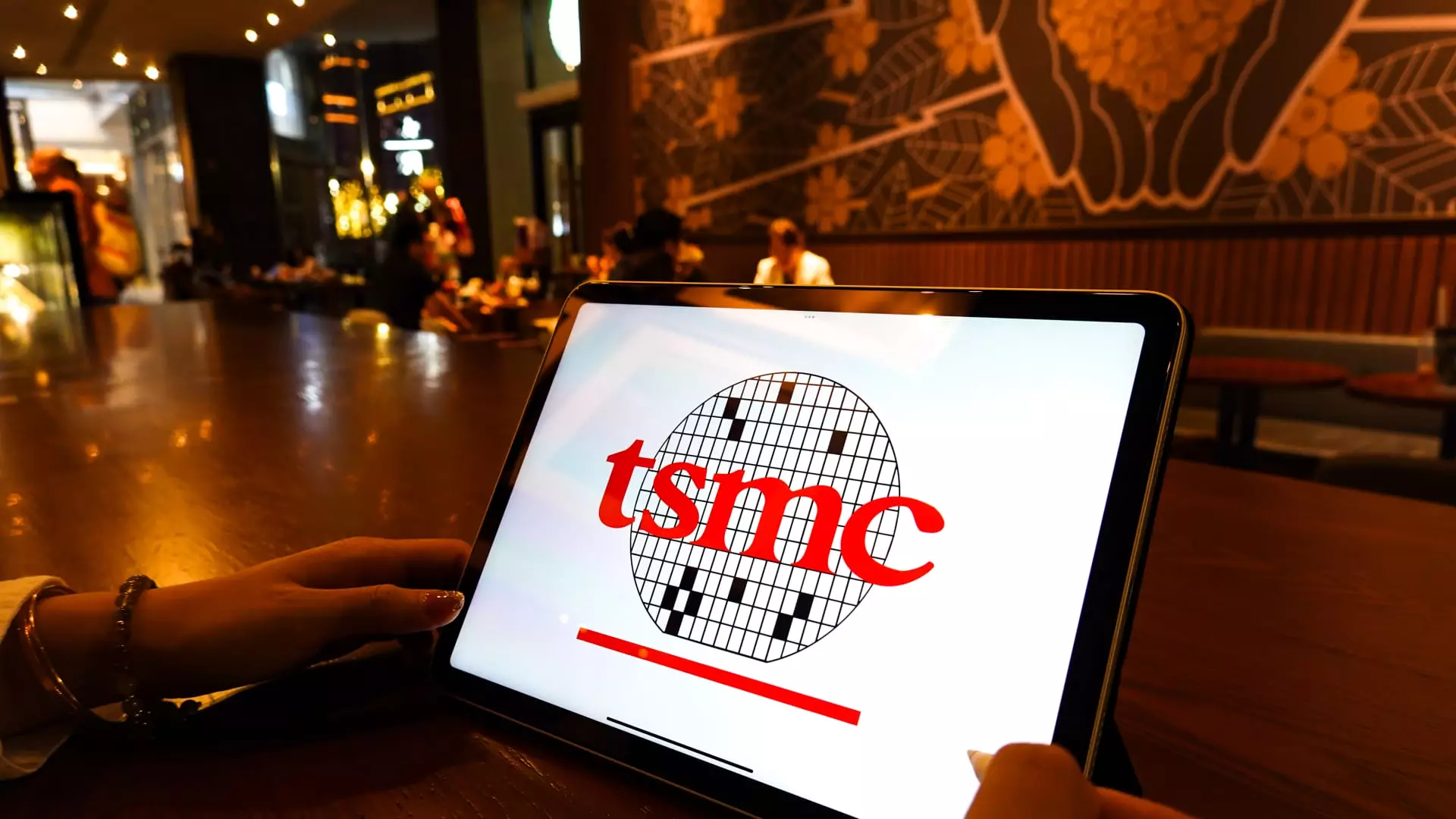In a tumultuous economy grappling with inflation and fluctuating demand, the Taiwan Semiconductor Manufacturing Company (TSMC) has emerged as a beacon of profitability. Reporting a remarkable 54% rise in net profits in the third quarter of the year, TSMC underscores its strategic advantage in a market increasingly driven by artificial intelligence (AI) applications. The implications of these earnings extend beyond mere numbers; they signify a robust validation of TSMC’s advanced technology and its critical role within the global semiconductor supply chain.
With a net income of approximately 325.3 billion Taiwanese dollars (approximately $10.1 billion), TSMC outpaced expectations set by analysts and reaffirmed its dominance in the semiconductor market. The company’s reported revenue of $23.5 billion for the quarter reflects a 36% year-on-year increase, showcasing both resilient demand and effective operational management. Additionally, TSMC’s gross margin has notably climbed to 57.8%, up from 54.3% in the same quarter last year, reinforcing its ability to manage costs effectively while maximizing revenue.
The company’s optimistic forecast for the final quarter of the year anticipates revenues between $26.1 billion and $26.9 billion, translating to a substantial 13% sequential rise and a staggering 35% increase year-over-year at the midpoint. This optimism is not merely grounded in conjecture; it is supported by the dynamics of a market heavily swayed by escalating demand for advanced computing capabilities, particularly in AI and high-performance sectors.
During an earnings call, TSMC’s CEO, C.C. Wei, articulated the undeniable influence of AI on its current success. The demand for the company’s cutting-edge 3nm and 5nm technologies has surged as businesses look to capitalize on AI advancements. Wei emphasized that nearly all AI innovators are forging partnerships with TSMC, which reflects not only the company’s pivotal role in this sector but also its ability to attract high-profile clients, such as Apple and Nvidia.
This thriving demand highlights a paradigm shift in the technology landscape, where companies are increasingly prioritizing AI capabilities. It raises pertinent questions about the sustainability of this boom. Despite the immediate benefits seen by TSMC, market analysts remain cautious about determining whether the current AI enthusiasm can maintain its trajectory or if the hype surrounding AI will normalize as the technology matures.
TSMC has recognized the necessity of expanding its manufacturing capability beyond Taiwan, investing over $65 billion in new chip plants in Arizona and inaugurating its first factory in Japan this year. Such strategic moves position TSMC as a crucial player not just in Taiwan but also within the U.S. and global markets. By enhancing its manufacturing footprint, TSMC aims to mitigate risks associated with supply chain disruption and cater better to regional demands—especially from the U.S., where semiconductor independence is a growing concern amidst geopolitical tensions.
This global expansion does not come without challenges. With a forecasted capital expenditure exceeding $30 billion for the year, TSMC is pushing against the industry norm. As international competition intensifies, particularly from rivals such as ASML—who recently issued a downbeat forecast—TSMC’s strategy to outpace competitors through investment in infrastructure may be critical for sustaining its competitive edge.
Despite its impressive performance and strong market position, TSMC’s future is not devoid of uncertainties. While the current AI demand surges, prominent figures in the industry, such as Foxconn’s Young Liu, caution that the AI boom may take time to mature fully. These sentiments point to a potential volatility in the sector, where companies must navigate the fine line between investing heavily in trend-driven technologies and ensuring long-term sustainability.
Moreover, the dichotomy between immediate profit figures and longer-term predictions creates a complex landscape for investors and stakeholders. As companies increasingly pour resources into AI, the pressure mounts to demonstrate a return on investment, and questions loom about the durability of consumer demand in this rapidly evolving field.
TSMC’s latest earnings report encapsulates both triumph and caution in the semiconductor market, reflecting an intricate balance between harnessing current opportunities and preparing for unforeseen challenges. As this industry evolves, TSMC’s strategic decisions will undoubtedly shape its trajectory and impact the broader technology landscape in profound ways.


Leave a Reply